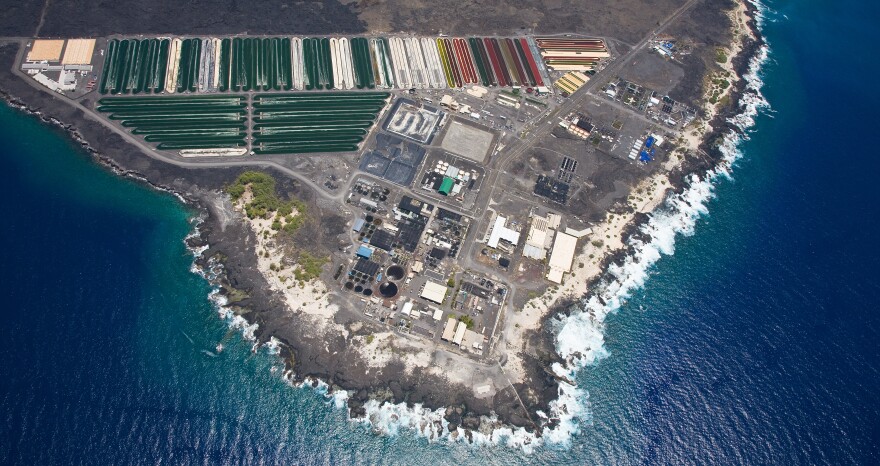Since 2021, tenants at the renowned Hawaiʻi Ocean Science and Technology (HOST) Park have experienced severe issues with growing larvae — a big part of the operations for many of the facility’s companies.
The problem has been so bad that the state Natural Energy Laboratory of Hawaiʻi Authority (NELHA) contracted scientist Jim Wyban to study what’s been described as a "multi-million dollar problem."
“There is a serious water quality problem in the HOST Park. It happens in larval rearing and it’s affected oysters, abalone, shrimp and finfish. The most dramatic effects are in the larval stage, particularly in shellfish and oysters in the zero to 10-day range,” Wyban told a NELHA board of directors meeting in May.
NELHA manages the HOST Park, located in Kailua-Kona. The facility houses about 50 aquaculture operations, renewable energy projects and other groups working with ocean-based sustainable technologies.
Some of the parkʻs operations involve raising larvae of different species. However, the water quality issue resulted in a significant drop in their survival rates.
Several tenants in the May meeting noted that a handful of companies left in the last year or so, although there has been some argument about whether that was actually because of the water issue.
Regardless, the companies that left and those that are still there say they have been struggling.
“The survival of our hatchery site at NELHA over the past two years has largely been due to the fact that we were able to buy larvae from outside sources,” said Nathan Tsao of Jamestown Seafood, one of the HOST Park tenants.
Jamestown Seafood is based in Washington state and grows oysters in a hatchery at the HOST Park.
“That was able to really get us through this really hard time. Without that very lucky option — and very few companies have that, the outsourcing of larvae — we would not have survived," Tsao said.
Tenants estimated millions of dollars have been lost because of problems caused by the park’s water quality.
Last year, a dozen HOST Park tenants — all of them using animal reproduction as their primary function — formed a group called the Keahole Point Larval Group to discuss their larvae-raising problems.
Those worries found their way to NELHA.
Wyban said there are two likely causes of the poor water quality: “bio-fouling,” the release of chemicals by different organisms into the park’s water pipes; or a bacteria that causes vibriosis, one of the most common diseases in aquaculture operations.
However, it’s not entirely clear what the issue is.
“There's just so many scientific explanations to this. I think our main thrust right now is to eliminate the independent variables and try to narrow down what the problem is,” said Greg Barbour, NELHA’s executive director.
He said that a number of factors do lead to “episodic” die-offs at aquaculture facilities in other parts of the world.
Since the problem started, NELHA and HOST Park tenants have tried short-term fixes with some success.
Barbour said some have installed ozone systems to disinfect the water, and NELHA also temporarily brought seawater directly to one operation. Both showed improvements in larvae survival rates.
There are also long-term plans to build a seawater well that can deliver water outside of the HOST Park pipes.
Ultimately, the tenants want NELHA to take action and responsibility for the water quality.
“This industry is pretty small countrywide. A lot of us across the nation know each other. … This problem is out there in our little universe of aquaculture,” Tsao said. “It would definitely behoove NELHA to get in front of this problem before it potentially gets worse out of a sheer reputation aspect.”
The HOST Park’s economic output in 2022 was $145.4 million, which is largely a measure of the tenants’ spending.
The University of Hawaiʻi Economic Research Organization reported earlier this year that, of that output, local entities received $90.3 million — an 18% increase over 2018. The growth took place, despite the impacts of the COVID-19 pandemic on most of Hawaiʻi’s economy.
NELHA businesses employ hundreds of people, contributing more than 700 jobs in the larger economy in 2022.
UHERO noted that NELHA received an average of $2.3 million annually from state funds.







